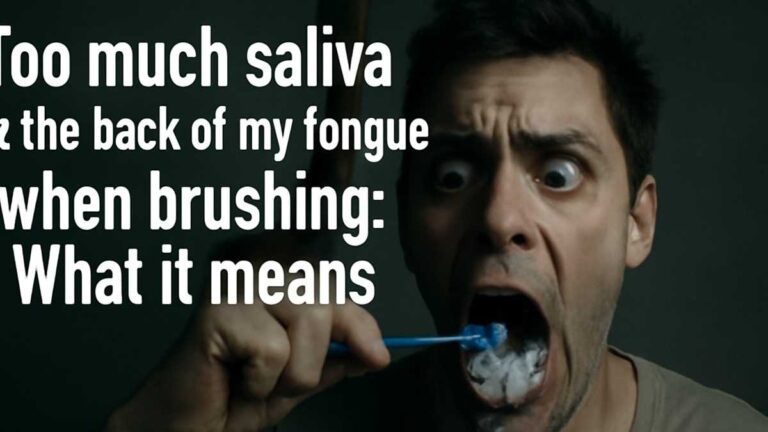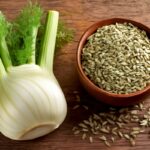Have you ever found yourself brushing your teeth and suddenly overwhelmed by an unexpected flood of saliva at the back of your tongue? It can be alarming to feel like there’s too much saliva in your mouth, especially when you’re just trying to maintain good oral hygiene. You might wonder why this is happening and if it’s a sign of something more serious.
The sensation can range from uncomfortable to downright distressing, leaving many people searching for answers about their hypersalivation. If you’ve been asking yourself, “Why do I have so much saliva on my tongue?” rest assured that you’re not alone. Let’s look into too much salivation, uncovering potential causes, and exploring what those extra droplets could mean for you!
Understanding Salivation and Hypersalivation
Salivation is a natural process that plays an essential role in our oral health. It helps with digestion, keeps our mouth moist, and protects against harmful bacteria. But what happens when this normal function goes haywire? That’s where hypersalivation comes into play.
Hypersalivation refers to the production of excessive saliva, often leading to discomfort and anxiety about managing it. You might find yourself constantly swallowing or trying to discreetly deal with the excess moisture building up at the back of your tongue. This experience can be not only bothersome but also embarrassing.
The salivary glands produce saliva in response to various stimuli like food smells or tastes, but sometimes they go into overdrive without any obvious trigger. If you’ve noticed too much saliva from the back of your tongue during brushing or throughout your day, you may be experiencing hypersalivation.
While some causes are benign—like certain medications or dietary choices—others could indicate underlying health issues that require attention. The worry grows as you ponder if this could lead to more serious complications down the road.
Understanding what’s happening in your body can help ease some of that anxiety. Getting familiar with how salivation works is crucial for addressing any concerns related to excessive saliva production.
Possible Causes of Excessive Saliva Production
Excessive saliva production can be alarming. If you’re experiencing too much saliva from the back of your tongue, it’s essential to consider what might be causing this discomfort. It can disrupt daily activities and even social interactions.
One common cause is anxiety or stress. When we’re anxious, our body reacts in various ways, including an increase in salivation. This response can leave you feeling overwhelmed, especially if you’re not sure why it’s happening.
Certain medications may also lead to hypersalivation as a side effect. Drugs for conditions like Alzheimer’s or Parkinson’s disease are known culprits. It’s crucial to check with your healthcare provider if you’re on any medication that could contribute to this issue.
Another potential factor is oral infections or dental issues such as gum disease and cavities. Poor oral hygiene allows bacteria to thrive, which can stimulate excessive saliva production as your body tries to fight off infection.
Some neurological disorders may play a role in increased salivation. Conditions affecting nerve function could result in the overactivity of salivary glands. This possibility adds another layer of concern when considering how your health impacts everyday life.
Recognizing Symptoms and Complications
Experiencing too much saliva from the back of your tongue can be unsettling. It’s not just a minor annoyance; it can lead to deeper concerns if left unaddressed. Many people overlook symptoms until they escalate, but awareness is key.
Pay attention to how often you feel the need to swallow or clear your throat. If this happens frequently, it could indicate that your salivation levels are abnormal. A constant feeling of wetness at the back of your mouth can also contribute to discomfort and difficulty speaking clearly.
You might notice changes in taste perception as well. Excessive saliva may wash away flavors, making meals less enjoyable and affecting appetite. This alteration in taste can be frustrating and impact your overall relationship with food.
Additionally, heightened saliva production may cause issues like bad breath or oral hygiene challenges. Bacteria thrive in moist environments—it’s crucial to stay vigilant about dental care during these times.
If you’re facing persistent drooling or choking sensations while eating or drinking, these complications warrant immediate attention from a healthcare professional. Ignoring them could lead to more severe health concerns down the line—it’s better not to take risks when it comes to our bodies.
Diagnosing and Treating Hypersalivation
Facing hypersalivation can be quite distressing. The constant sensation of excess saliva pooling at the back of your tongue makes everyday activities challenging. You may find yourself avoiding social situations or feeling self-conscious about how you speak.
Diagnosing this condition often involves a visit to a healthcare professional. They will ask questions about your symptoms and medical history, which might feel overwhelming. There are various tests available that assess salivary flow and rule out other potential health issues.
Treatments for hypersalivation vary widely depending on its underlying cause. Some people find relief with medications designed to reduce saliva production, while others may require more specialized interventions. It’s disheartening when simple solutions don’t work, leaving you searching for alternatives.
Lifestyle changes can also play an important role in managing excessive saliva production. Adjusting your diet or incorporating specific oral hygiene practices could provide some relief during daily routines.
The uncertainty surrounding treatment options is unsettling, especially if you’ve been struggling with these symptoms for some time now. It’s essential to remain proactive in discussing all available avenues with your doctor so you don’t feel alone in this journey.
Managing Excessive Saliva Production at Home
Dealing with excessive saliva can be an uncomfortable experience. When you find yourself asking, “Why so much saliva in my tongue?” it may feel overwhelming. Fortunately, there are several strategies to help manage this condition from the comfort of your home.
First and foremost, staying hydrated is essential. Drinking enough water can help balance saliva production and keep your mouth feeling fresh. Additionally, chewing sugar-free gum or sucking on hard candies can stimulate swallowing reflexes, helping control excess saliva flow.
Mindfulness techniques such as deep breathing exercises might also reduce anxiety-related salivation. Stress often contributes to hypersalivation; therefore, finding ways to relax through yoga or meditation could make a difference.
Another simple approach involves adjusting your diet. Avoiding foods that trigger increased salivation—like citrus fruits or spicy dishes—can minimize discomfort during meals and while brushing your teeth. Opt for soft foods that require less chewing whenever possible.
Maintaining good oral hygiene is crucial too. Regular visits to the dentist will ensure any underlying issues contributing to excessive saliva are addressed properly. Using mouthwash designed for dry mouths may provide temporary relief by reducing the sensation of having too much liquid in your mouth.
If these home remedies don’t seem effective over time, it’s vital not to ignore what’s happening in your body.
Understanding what’s causing all this extra moisture will better equip you when seeking professional medical advice about managing excessive saliva production effectively and safely moving forward.








